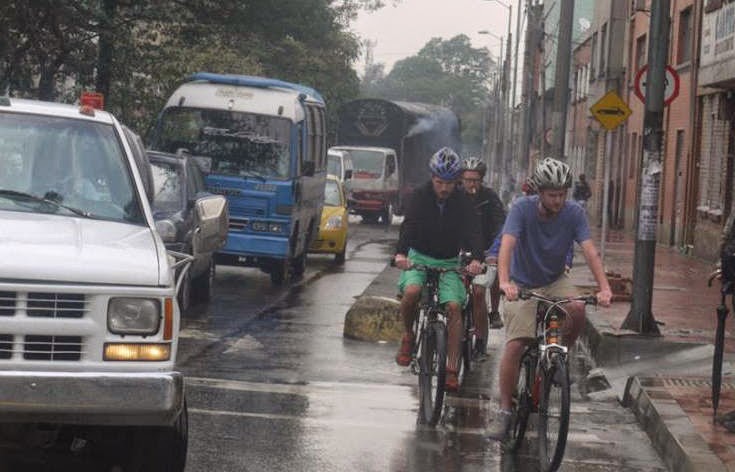| Capital Bikeshare bikes in Washington, D.C., which receive public subsidies. (Photo: Wikipedia) |
The winner is a Colombo-Chinese consortium with no experience in bicycles, one of whose owners has a history marked by corruption and incompetence.
 |
| EcoBici bikes, in Mexico City, which receive public subsidies. (Photo: Wikipedia) |
To a lot of us, including several of the losing contenders, that sounds completely unrealistic.
A representative of Next Bike, a German company which had expressed interest in Bogotá's public bikes system but decided it was economically inviable, told La Otra Cara website in 2014 that "they're going to supply Bogotá with U.S. $15.00 bicycles which will be destroyed after a few months' use."
 |
| Barclays Bikes in London, which are sponsored by the bank. (Photo: Wikipedia) |
However, Bogotá's government, despite its leftist credentials, approached the deal with an intensely capitalist mentality. Rather than envisioning the bikes as a public service deserving subsidies because of its quality of life benefits thru better health, reduced pollution and less traffic congestion, the government wants the bikes to generate profits.
Perhaps such schemes can stand on their own economically in rich cities such as New York and
London, with huge tourist flows, where residents can shell out the dollars to pedal and where advertising space commands premium rates. But that's not Bogotá, Colombia.
 |
| Bogotá's public bikes: Subsidies, no, profits, yes. (Photo: David Luna) |
From the Post story quoting Chris Hamilton, a regional transportation official:
"They can’t go into starting bikeshare thinking that it’s going to pay for itself. It should be treated like any other part of the transportation system: like the buses, the bikeways, the rail, the sidewalks."
If a city declines to view bikeshare this way, making the public investment that entails, Hamilton says, "I think you set it up to fail."
This is particularly true because those vehicles which do congest the city, generate pollution and destroy our health do receive huge - if often invisible . subsidies thru free parking and the way we all suffer under their negative impacts.
Bogotá's public bikes story smacks of a mayor rushing to ink a contract before he's out the door. That might be because he wants to leave a legacy or possibly for other, less admirable motives. But, either way, it looks like a route to disaster.
Nevertheless, I'm going to cross my fingers, knock on wood, hold out hope and keep the faith that this just might succeed. If it doesn't, after all, it'll be a huge setback for bicycling in Bogotá.
By Mike Ceaser, of Bogotá Bike Tours





